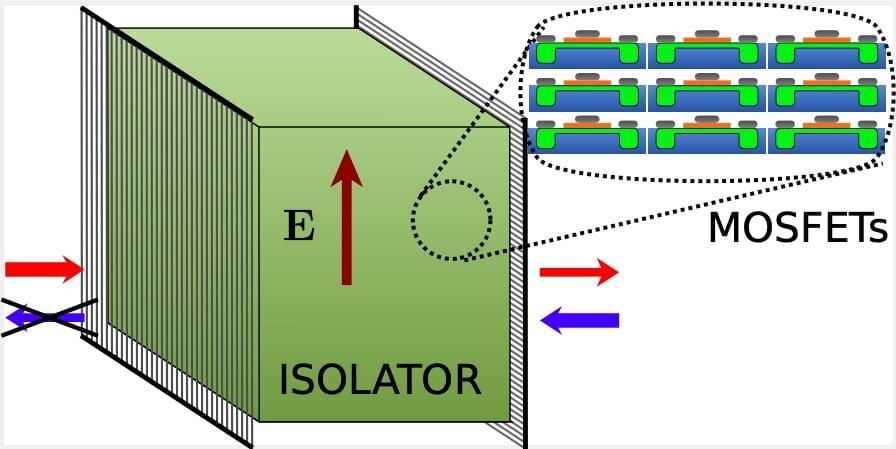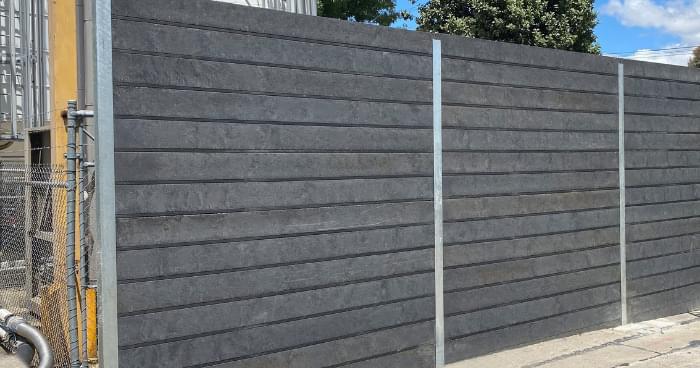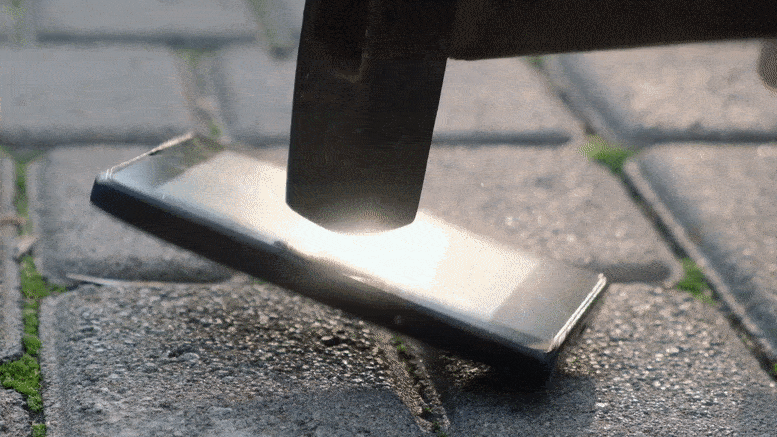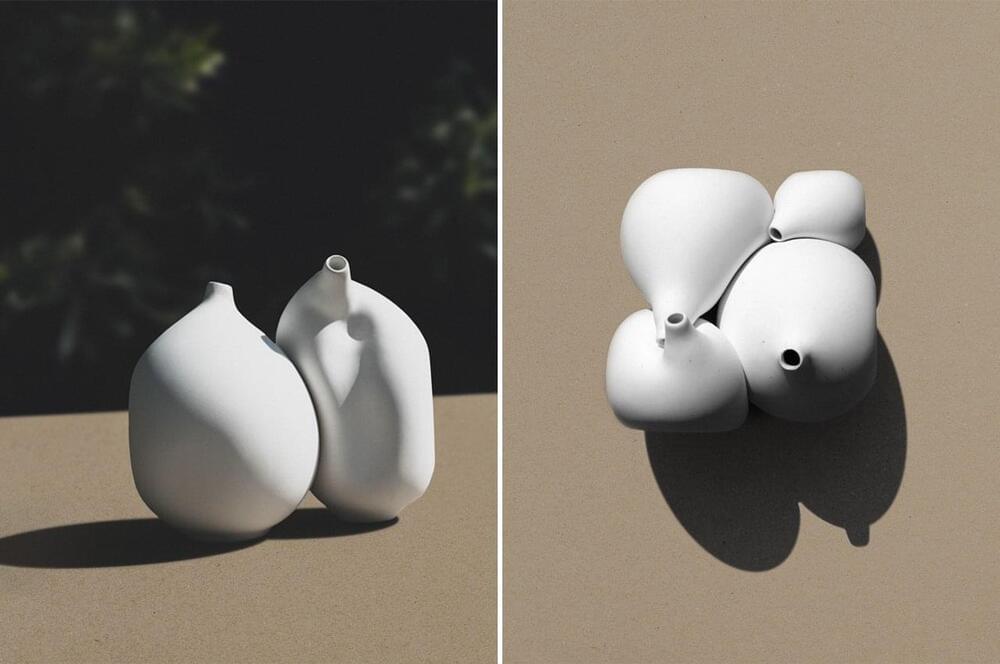Only 17% of electronic waste, that they’re full of tiny, toxic materials that are hard and expensive to break down, is recycled.
That’s because devices aren’t designed to be recycled.
Only 17% of electronic waste, that they’re full of tiny, toxic materials that are hard and expensive to break down, is recycled.
That’s because devices aren’t designed to be recycled.


Thermal span in a layered compound promises applications in next-generation electrical switches and nonvolatile memory.
When temperature changes, many materials undergo a phase transition, such as liquid water to ice, or a metal to a superconductor. Sometimes, a so-called hysteresis loop accompanies such a phase change, so that the transition temperatures are different depending on whether the material is cooled down or warmed up.
In a new paper in Physical Review Letters, a global research team led by MIT physics professor Nuh Gedik discovered an unusual hysteretic transition in a layered compound called EuTe4, where the hysteresis covers a giant temperature range of over 400 kelvins. This large thermal span not only breaks the record among crystalline solids, but also promises to introduce a new type of transition in materials that possess a layered structure. These findings would create a new platform for fundamental research on hysteretic behavior in solids over extreme temperature ranges. In addition, the many metastable states residing inside the giant hysteresis loop offer ample opportunities for scientists to exquisitely control the electrical property of the material, which can find application in next-generation electrical switches or nonvolatile memory, a type of computer memory that retains data when powered off.

Much like people can learn more about themselves by stepping outside of their comfort zones, researchers can learn more about a system by giving it a jolt that makes it a little unstable—scientists call this “out of equilibrium”—and watching what happens as it settles back down into a more stable state.
In the case of a superconducting material known as yttrium barium copper oxide, or YBCO, experiments have shown that under certain conditions, knocking it out of equilibrium with a laser pulse allows it to superconduct—conduct electrical current with no loss—at much closer to room temperature than researchers expected. This could be a big deal, given that scientists have been pursuing room-temperature superconductors for more than three decades.
But do observations of this unstable state have any bearing on how high-temperature superconductors would work in the real world, where applications like power lines, maglev trains, particle accelerators and medical equipment require them to be stable?


Farmers struggling to adapt to rising temperatures in tropical regions can unleash the benefits of natural cooling, alongside a host of other wins, simply by dotting more trees across their pasturelands. For the first time, a study led by the University of Washington puts tangible numbers to the cooling effects of this practice.
Researchers at the UW and The Nature Conservancy, along with Duke University, the University of California San Diego and Stony Brook University Hospital, find that adding trees to pastureland, technically known as silvopasture, can cool local temperatures by up to 2.4 C (4.3 F) for every 10 metric tons of woody material added per hectare (about 4 tons per acre) depending on the density of trees, while also delivering a range of other benefits for humans and wildlife.
The paper was published Feb. 4 in Nature Communications.

Transistors based on semiconductor materials are widely used electronic components with many remarkable properties. For instance, they have a nonreciprocal electrical response, which means that they can isolate two parts of a circuit in such a way that one of the parts (the input section) can influence the other part (the output section), but not the other way around. In addition, transistors can amplify voltage signals, and thereby can supply energy to a system. Non-energy conserving interactions are usually referred to as “non-Hermitian.”
Researchers from Instituto de Telecomunicações at the University of Coimbra and University of Lisbon have recently introduced a new class of bulk materials that draws inspiration from the non-reciprocal and non-Hermitian responses of conventional semiconductor-based transistors. They presented these transistor-like three-dimensional (3D) bulk metamaterials in a paper published in Physical Review Letters.
Mário Silveirinha, one of the researchers who carried out the study, told Phys.org, “The ideas developed in our paper were mostly driven by the question: Would it be possible to somehow imitate the response of standard transistors in a bulk metamaterial? We were intrigued if it would be feasible to have a bulk material which, when suitably biased, could manipulate electromagnetic waves in the same way as a transistor manipulates a voltage signal.”

University of Melbourne experts have been working with industry to find new uses for large volumes of recycled waste plastics.
When it comes to finding new ways to use old plastics, bigger really is better. After all, the more plastic waste used in a material, the less ends up in landfill.
A promising emerging technology from Mildura-based Integrated Recycling, tested by University of Melbourne experts, could be used to build very large structures like noise barriers, helping to keep hundreds of tonnes of plastics out of the ground.

The new substance is the result of a feat thought to be impossible: polymerizing a material in two dimensions.
Using a novel polymerization process, MIT chemical engineers have created a new material that is stronger than steel and as light as plastic, and can be easily manufactured in large quantities.
The new material is a two-dimensional polymer that self-assembles into sheets, unlike all other polymers, which form one-dimensional, spaghetti-like chains. Until now, scientists had believed it was impossible to induce polymers to form 2D sheets.

Ceramic Bodies is a collection of four porcelain vases that fit together like a three-dimensional puzzle.
Designer Jörg Hugo studied architecture before opening his own design studio. Calling it Studio Jörg Hugo, his work largely explores “the relationship between materiality, form, and space,” as he describes on his personal website. Relying on either digital or analog design methods and production techniques, Hugo creates timeless pieces that completely reinterpret how we interact with space and material. One of his most recent projects, Ceramic Bodies, comprises a collection of four porcelain vases that almost appear to melt into each other like a three-dimensional puzzle.
Designer: Jörg Hugo